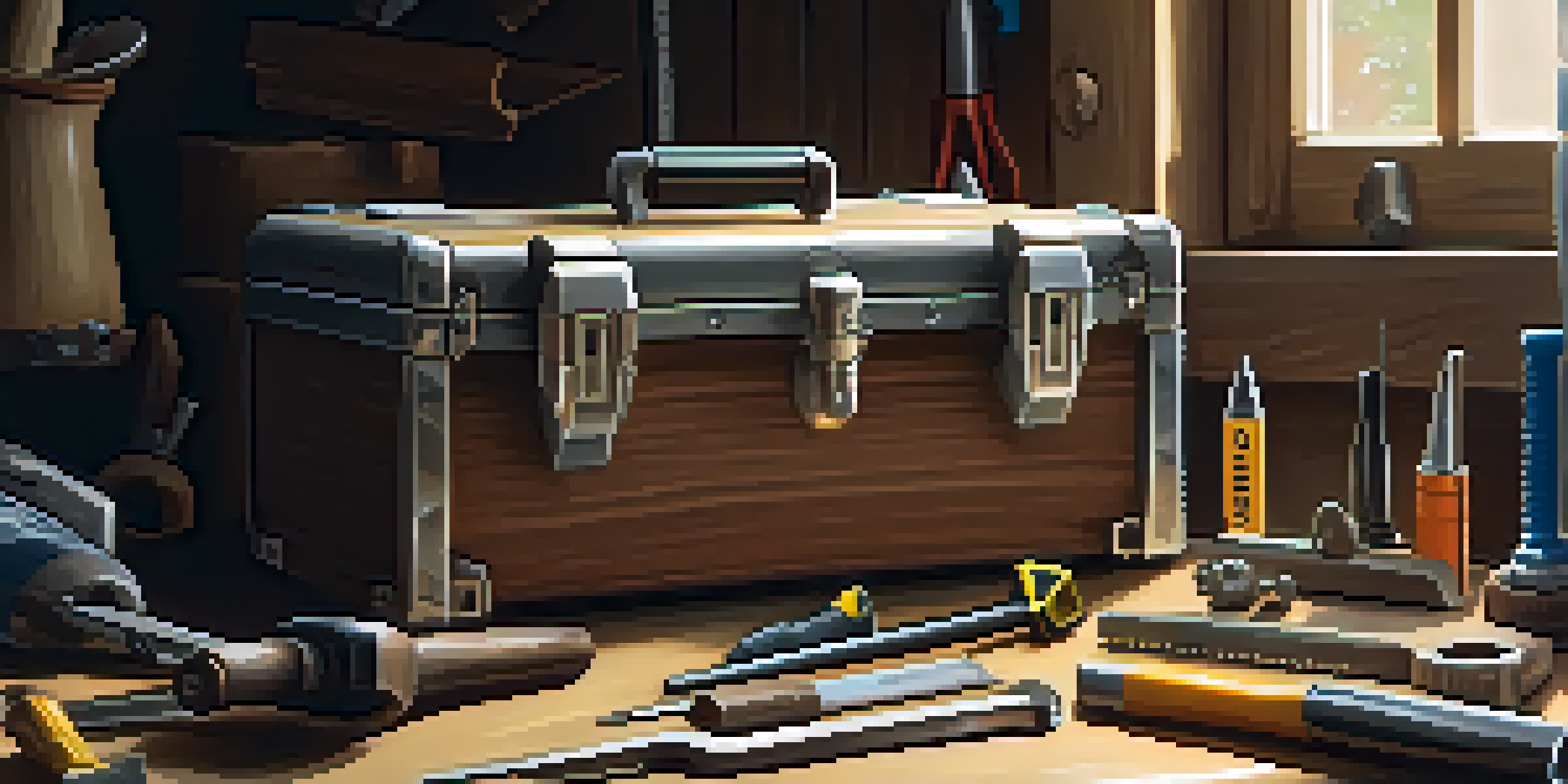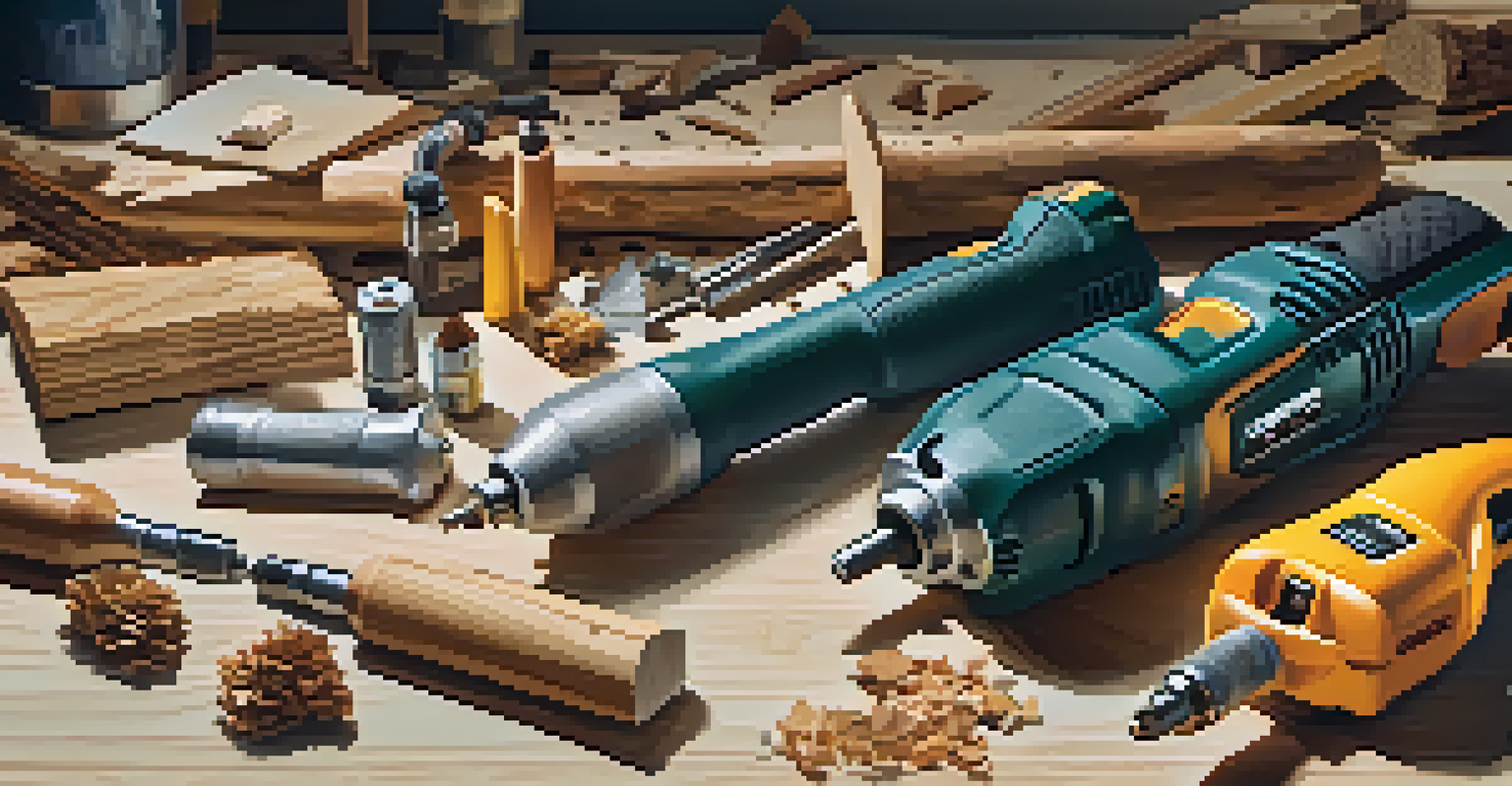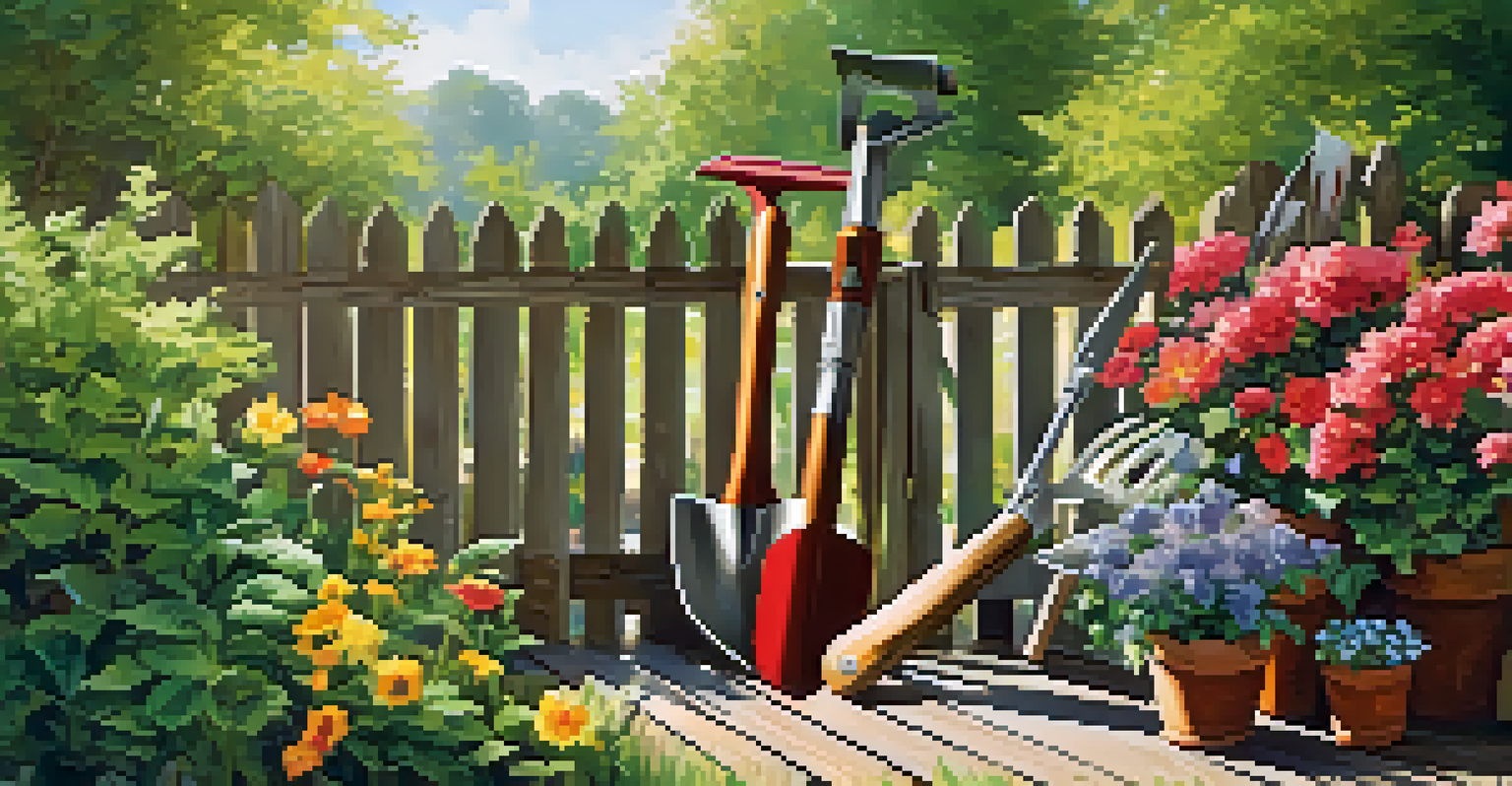Essential Tools for Homeowners to Fix Common Issues

Basic Hand Tools: Your First Line of Defense
Every homeowner should have a basic set of hand tools. This typically includes a hammer, screwdrivers, pliers, and a tape measure. These tools are essential for everyday tasks, from hanging pictures to assembling furniture.
The best way to predict the future is to create it.
Think of hand tools as your trusty sidekicks; they’re always there when you need to fix a loose cabinet or tighten a doorknob. Having these tools on hand can save you time and money, allowing you to tackle minor repairs without calling in a professional.
Make sure to invest in quality tools that will last. A good hammer or a reliable set of screwdrivers can make all the difference in how easily you complete a project.
Power Tools: For Bigger Jobs and Efficiency
Power tools can dramatically speed up larger projects around your home. A cordless drill, for example, is invaluable for tasks like building furniture or installing shelves. It saves you from the hassle of manual labor and provides consistent results.

Other useful power tools include a circular saw for cutting wood and a jigsaw for more intricate shapes. While these tools require a bit of practice, they are essential for any homeowner looking to take on DIY projects.
Essential Hand Tools for Homeowners
A basic set of hand tools, like hammers and screwdrivers, is crucial for performing everyday repairs and maintenance around the home.
Always prioritize safety when using power tools. Make sure to read the manual and wear appropriate protective gear to avoid accidents.
Plumbing Tools: Fixing Leaks Like a Pro
Dealing with plumbing issues can be daunting, but having the right tools can simplify the process. A good set of adjustable wrenches, a pipe wrench, and a plunger are essential for tackling common plumbing problems like clogs or leaky faucets.
Success is the sum of small efforts, repeated day in and day out.
Think of your plumbing tools as your emergency kit for water-related issues. With these tools, you can address many problems before they escalate into costly repairs.
Remember to turn off your water supply before starting any plumbing work. This simple step can save you from dealing with a water mess.
Electrical Tools: Stay Safe While Fixing
When it comes to electrical repairs, safety is paramount. Having a voltage tester, wire strippers, and a basic multimeter can equip you to handle minor electrical tasks safely. These tools help you check for live wires and ensure that connections are secure.
Think of electrical tools as your safety net; they allow you to troubleshoot issues without risking your safety. If you’re unsure about any electrical work, don’t hesitate to call a professional.
Power Tools Boost Efficiency
Power tools, such as cordless drills and saws, significantly speed up larger DIY projects, making them invaluable for homeowners.
Always ensure your hands are dry and avoid working on live circuits. Safety should always come first when dealing with electricity.
Gardening Tools: Keeping Your Yard in Shape
A well-maintained yard can enhance your home's curb appeal, making gardening tools essential for any homeowner. Basic tools like a spade, pruning shears, and a rake will help you keep your garden in pristine condition.
Think of gardening tools as your partners in creating a beautiful outdoor space. They not only help you maintain your yard but also provide a great opportunity for exercise and relaxation.
Don’t forget to keep your gardening tools clean and rust-free. Proper maintenance extends their life and ensures they’re always ready for use.
Safety Gear: Protecting Yourself During Repairs
No matter what project you’re tackling, safety gear is a must. This includes gloves, safety goggles, and a dust mask to protect yourself from debris and harmful substances. Investing in good-quality safety gear is a small price to pay for peace of mind.
Think of your safety gear as your armor; it prepares you for the challenges ahead. Whether you're hammering nails or cutting wood, being protected allows you to work confidently.
Safety and Organization Matter
Using safety gear and organizing your tools effectively not only protects you during repairs but also enhances your overall efficiency.
Always wear appropriate gear tailored to the job at hand. Being proactive about safety can prevent injuries and ensure a smoother repair process.
Storage Solutions: Organizing Your Tools Effectively
Having the right tools is only part of the equation; organizing them is equally important. Invest in toolboxes, pegboards, or shelving units to keep your tools easily accessible. This organization saves you time and frustration when you need to find a specific tool.
Think of your storage solutions as a toolbox's best friend; they keep everything in its place. A clutter-free workspace allows you to focus on the task at hand without unnecessary distractions.

Regularly assess your storage system and make adjustments as needed. Staying organized not only enhances efficiency but also prolongs the life of your tools.
DIY Guides: Learning to Use Your Tools Effectively
Equipping yourself with tools is just the first step; knowing how to use them effectively is crucial. Many resources, such as online tutorials and DIY guides, can help you learn the ins and outs of your tools. Take the time to familiarize yourself with each tool’s function.
Think of DIY guides as your personal trainers; they teach you the skills needed to build confidence in your abilities. With practice, you’ll find that many repairs become second nature.
Don't be afraid to make mistakes; they are part of the learning process. Embrace each project as an opportunity to grow your skills and improve your home.